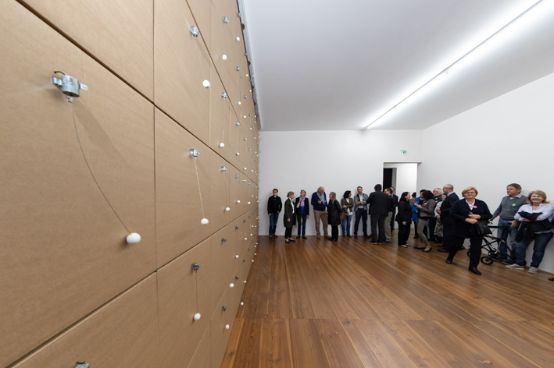Complexities, digital and primitive
A rollercoaster of emotions at this year's Donaueschingen Music Days.

The world premiere of a piece from 1965 is not an everyday occurrence - especially not at the Donaueschinger Musiktage, where topicality is a top priority. This time, the program includes a piece by Hermann Meier, this Swiss unknown whose aesthetics neither fit in with the post-war avant-garde nor with the ideas of a festival organizer in the 1960s. Heinrich Strobel, director of the Donaueschingen Music Festival at the time, rejected Meier's works. The composer, who was born in Selzach in 1906, simply noted with resignation on the last page of the score of the Piece for large orchestra and piano four hands"SW-Funk rejected this score on October 6, 1965".
The tone of this "piece" is strange: Meier not only avoided thematic material, he also deliberately avoided any developments. He was strongly influenced by the visual arts. Inspired by Piet Mondrian's exhibition in Zurich in 1955, he composed static, timeless soundscapes that he strung together like blocks. This is not Meier's strongest work. For long stretches, there are sparse timpani strokes or hammering piano clusters. He uses the strings too seldom, although their horizontal surfaces develop a cool-sounding charm. Meier probably intended anti-expressive monotones, even abruptness - but all this lacks the wild radicalism that characterizes many of his other orchestral pieces. There is still a lot to discover in the under-explored Meier cosmos.
From failure ...
There were 22 world premieres this time. The Donaueschingen Music Festival has a long tradition of quality ups and downs, but rarely has it reached such dimensions. Isabel Mundry is completely stranded. She conducted an interview with a Syrian student and let the singers of the SWR vocal ensemble speak excerpts from it. In the obviously intended reference to everyday life, this Mouhanad to a superficial, almost embarrassing examination of a topic that is robbed of its complexity. Sure, you don't always have to deconstruct or collage. But there is no artistic added value in redundantly referencing the well-known organizational problems of a refugee in the midst of German bureaucracy. The orchestral work Ricochet by the English composer Benedict Mason fails. The musicians of the SWR Symphony Orchestra stroll cheerfully through the rows of audience members, sometimes moving into corridors or rooms in the Baar sports hall. However, the events of distant sound effects and the simplest dialogs between different orchestral groups quickly become exhausted. Repetitions of notes, simple quaver rhythms or the intonation of the most banal scales underchallenged both musicians and audience.
... and success
There was also an impressive overload. In his Thinking Things, Georges Aperghis dealt with the central theme of "Man and Machine" in Donaueschingen. The stage is lined up with what look like movable walls with peep boxes. A talking robot head moves back and forth above the walls, artificial, moving limbs protrude, the wall cut-outs provide a view of real actors, in addition to simultaneous video sequences, harsh, disjointed computer sounds and a surround sound system. Aperghis speaks of a "scherzo panic" - indeed, his multimedia "theater of the aberrations of robotics" is terrifying. After all, the still surreal independence of the machine could soon be real. In another way, a Ballata N. 7 for ensemble by Italian composer Francesco Filidei, born in 1973. He has a soft spot for musical tradition and impresses with his immense wealth of ideas combined with a sense of intrinsic musicality. Towards the end of the rich Ballata N. 7 comes a Mahleresque idyll in unmistakably ironic exaggeration. Afterwards, the turning of apparently empty score pages unfolds with a slightly pulsating thrust. Has everything been said? No, there are still many refreshing ideas in the field of ensemble composition - even without video, electronics or grandiose concepts in the background.
The same applies to sound installations. Zimoun, a sound artist born in Bern in 1977, connects 84 small electric motors to balls that hit stacked moving boxes. There is nothing digital here either, no computer, no microcontroller, no complicated motor control. Zimoun calls his artistic credo "primitive complexity", which gives space to chance and thus to polyphonic, irregular rhythms that develop power in their own lives.
There can hardly be a summary of a festival as dense as the Donaueschingen Music Days. But perhaps a plea: less fuss will do.








